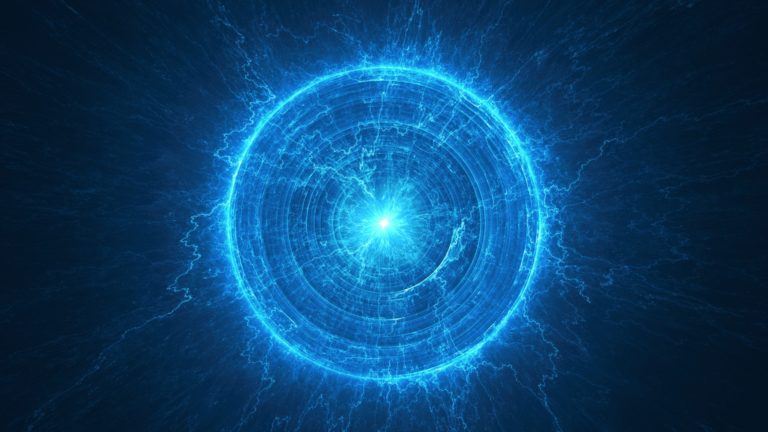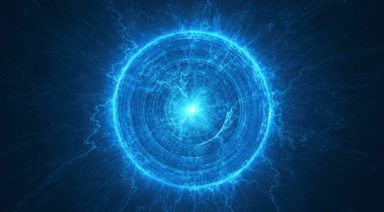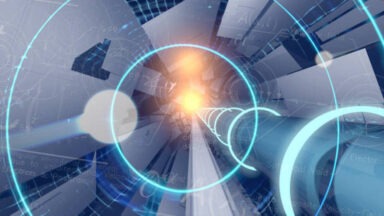Can Human Consciousness Live in AI Computers and Machinery?

Can Human Consciousness Live in AI Computers and Machinery?
Science fiction movies about robots and advanced technological machines capture our attention and do well at the box office. Man fights against machine as he uses his intelligence, reasoning ability and emotional reactions to outdo the machine that is functioning on Artificial Intelligence (AI). But sometimes, the machine wins. Are these movies just entertainment, or are they warning us about the future? Is there a need to be worried?
Is it possible that mind uploading can be accomplished so that our very essence and consciousness is stored within the machine? Will machines soon be programmed so that when our bodies die, The Machines Will Live On With Our Consciousness Extended Into Infinity?
THE RISE OF SUPERINTELLIGENT AI
Yale professor and Author Susan Schneider Has Written Extensively about machine consciousness. She notes that over the last few years, there has been a dramatic rise in attempts to create “superintelligent machines” that will out-perform human beings with advanced “thinking” skills. The machines will not only answer questions and do complicated research, but they will be programmed to have “common sense reasoning and social skills.”
Will these machines discover cures to diseases, solutions to poverty and preservation of resources? Or Will The Machines Turn On Us and result in the destruction of the world as we know it?
DR. JOHN LORBER: WE MAY NOT NEED OUR BRAIN
There are many theories of consciousness. Not so long ago, researchers believed consciousness was a function of the brain. As research and technology have expanded, the scientific community has not accepted a definitive theory on consciousness. Dr. John Lorber, A British Neurologist, became convinced that the brain may not be necessary for overall functioning, nor is it the seat of consciousness.
In his practice, Dr. Lorber treated patients with hydrocephalus: hydrocephalus is a condition where fluid accumulates in the brain. Many individuals with hydrocephalus are disabled and do not function well. However, Dr. Lorber saw tremendous achievements by some of his patients who had almost non-existent brain tissue.
Dr. Lorber reported on one patient who had “virtually no brain.” Even so, the young man graduated with honors from college with a math degree. He was socially normal and had an IQ of 126. This inspired Dr. Lorber to do research to confirm that his findings were not just anecdotal. He studied the brains of 600 patients with hydrocephalus whose brain scans showed very little brain matter. Ten percent of them were severely handicapped. But half of them had normal functioning and IQs greater than 100.
In order to stimulate more interest in his work, Lorber posed the question, “Is your brain really necessary?” Lorber’s work was published in Science Magazine in 1980, but his work was not accepted within the scientific community. He died in 1996, before the proliferation of computers in general and before the public was privy to AI. But, some have taken his theory and expanded on it.
Rise of Artificial Intelligence
The onward march of technology can be quite exhilarating as new developments promise to usher in a new era of ease, education and wellbeing for all of humanity. But who will claim superiority when technologically augmented humans beings clash with the rise of artificial intelligence?
EXPANDING ON DR. LORBER’S THEORIES OF CONSCIOUSNESS
In 2015, British biochemist David Forsdyke Revisited Lorber’s Work. Pursuant to Forsdyke’s follow-up research, he concluded that Lorber’s theory was true; there are still many high-functioning individuals with hydrocephalus who essentially live without brains. As a result of his studies, Forsdyke says, “we need to consider the possibility that memory is stored in some extremely minute, subatomic, form, as yet unknown to biochemists and physiologists or, maybe, that it is stored outside the body—extracorporeal!”
Scientists continue the search for human consciousness, working to find out how mind uploading could work so that computers will not just spit out facts, but will contain the consciousness necessary in order to think, reason and feel emotions. If it is true that our consciousness is not physically or biologically-based, Could It Be Possible To Build A Computer Or Machine That Houses Consciousness? Many scientists and philosophers now believe we are close to achieving just that. One of them is American philosopher Daniel C. Dennet.
DANIEL C. DENNET AND THE EVOLUTION OF CONSCIOUSNESS
Daniel C. Dennet is a professor of philosophy at Tufts University and co-director of the Center for Cognitive Studies. He has been Studying And Writing About Consciousness since his first book was published in 1969. He works with philosophers and scientists with a goal of developing a machine with consciousness. In the 1990s, he worked with a team of MIT scientists to create a “conscious robot” named Cog.
People who interacted with Cog were impressed with how very human the robot seemed to be. It maintained eye contact when it shook hands and nodded its head when interacting with others. Although Cog was unfinished, and eventually relegated to a museum, Dennet says it was a success “because it inspired other philosophers and scientists to continue the research.” He believes that eventually there will be a conscious robot and when that robot enters “into the company of persons. We should treat it with consideration and respect.”
THE GOOD, THE BAD AND THE UGLY OF MACHINE CONSCIOUSNESS
Writing for the Kurzweill AI Blog, Susan Schneider believes that it is definitely possible to create a superintelligent machine that can surpass our intelligence and appear and behave as conscious. She sees the development of this technology as almost dangerous. If “humans upload their brains, or slowly replace the parts of their brains underlying consciousness with silicon chips,” only non-humans will remain. She sees that as an “unfathomable loss.”
Schneider says she used to assume the problem of AI consciousness had “an easy solution.” AIs seemed to do the same computational processes as humans. They could each convey the same message, but now she realizes there is more to it. The question is still an open one and needs further exploration. She raises the same ethical questions as Dr. Dennet: If AI is conscious, must we treat it with the same respect and dignity as a sentient being?
Schneider poses an interesting question: Could AI question whether a biological, carbon-based entity like a human being really has the “right substrate for experience?”
THE FATE OF HUMAN CONSCIOUSNESS
It is too soon to tell whether human consciousness will live in AI computers and machinery, but the Strong Majority Of Scientific Opinion of those working in the field say that yes, machine consciousness will exist. The question is, Will It Be For Good Or Evil? Will it then need to be treated as a sentient being? Whose consciousness will be uploaded into a machine?
While it seems pretty certain that machine consciousness will exist, there are more questions concerning the ethics of such a process and what the ramifications will be. The “Rise Of Artificial Intelligence” episode in our Deep Space series takes an even deeper look at the topic of transferring consciousness. Explore this topic further and come to your own conclusions about the fate of human consciousness.

Achieving Unlimited Free Energy

Free Energy
What if we could harness an energy source that provided free unlimited energy? An energy source that is pervasive throughout the universe and all around us, like a sea of energy. The answer to this might be Zero Point Energy (ZPE). ZPE is thought to be the quantum energy that exists in what we see as empty space from electromagnetic waves. To give an idea of this type of energy’s potential, one cup of ZPE would be enough to evaporate all the water in Earth’s oceans.
Originally, it was believed that at absolute zero, also known as the vacuum state, all subatomic movement stopped. However, scientists found that, in fact, there is movement and extensive amounts of energy, which is referred to as zero-point energy.
The theory of ZPE and whether it can be harnessed to produce energy has been an ongoing point of contention. But ZPE’s existence has been proven, and to hopeful scientists it has the potential to be a viable power source. Skeptics brush it off as being either non-existent or impossible to attain as an energy source. But Dr. Garret Moddel from the University of Colorado at Boulder, recently patented a prototype to harness ZPE.
Casimir Cavity
Moddel’s method relies on what is referred to as a Casimir cavity for harvesting ZPE. The ZPE field is close to an absolute minimum energy field where electromagnetic fluctuations force particles to pop in and out of existence.
The Casimir cavity, consisting of two plates held very closely together with an electromagnetic field separating them, creates an even lower field restraining the atomic particles from these electromagnetic fluctuations which subsequently release energy that can be harnessed. The atoms then travel out of the cavity and become reenergized by the universal quantum vacuum, which exists everywhere, allowing for an unlimited power source. And although this may sound fantastical, it is theoretically possible.





































